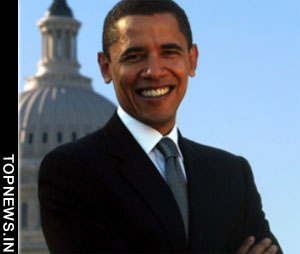Jordanians give Obama's remarks a cautious welcome
 Amman - Jordanian politicians and pundits on Wednesday welcomed US President Barack Obama's strong support for the two-state solution of the Palestinian-Israeli conflict - but queried the pressure he would put on the right-wing government in Israel.
Amman - Jordanian politicians and pundits on Wednesday welcomed US President Barack Obama's strong support for the two-state solution of the Palestinian-Israeli conflict - but queried the pressure he would put on the right-wing government in Israel.
"We are optimistic, but we should not go too far in this optimism," Mahmoud Mhaidat, Chairman of the Foreign Relations Committee at the Jordanian lower house of parliament, told German Press Agency dpa.
He was commenting on the outcome of a meeting between Obama and Jordan's King Abdullah II at the White House on Tuesday.
The monarch, the first Arab leader to meet Obama after he became US president, carried with him a pan-Arab attitude as adopted by the regular Arab summit conference in Doha at the end of March.
Six Arab foreign ministers and the Arab League Secretary General Amr Mussa, who met in Amman last week, reportedly provided King Abdullah with an authorization to speak on behalf of all Arab states during his meeting with Obama.
"I am a strong supporter of a two-state solution. I have articulated that publicly, and I will articulate that privately. And I think that there are a lot of Israelis who also believe in a two-state solution," Obama said in a joint briefing to the press with King Abdullah.
Mhaidat welcomed Obama's pledge to back the establishment of an independent Palestinian state that lives in peace with Israel, but was not sure if the US president could put adequate pressure on the Israeli Prime Minister Benjamin Netanyahu and his far-right Foreign Minister Avigdor Liebermann to accept the two-state vision.
"We hope that Obama's role will be an effective one as he promised during the presidential election campaign and that he proves he is different from the pattern pursued by his predecessor (George W) Bush, who, for certain considerations was completely biased with Israel," he said.
Netanyahu so far failed to endorse the two-state solution and instead offered the Palestinians "economic peace".
Mhaidat, a pro-government lawmaker, contended that King Abdullah had obtained the "required response" from Obama in terms of US support to the Arab peace initiative, which was first launched at the Arab summit in Beirut in 2002, and to the contention that surfaced at the Doha summit that the blueprint "will not remain on the table forever".
"I agree that we can't talk forever, that at some points steps have to be taken so that people can see progress on the ground. And that will be something that we will expect to take place in the coming months," Obama said.
The Arab peace plan envisages extending recognition to Israel by all Arab states if it pulls out from all Arab territories it occupied in the
1967 Six-Day War, including East Jerusalem.
Obama declared that he would be having separate talks with Netanyahu, Egyptian President Hosny Mubarak and Palestinian President Mahmoud Abbas in June to try to push forward the Middle East peace negotiations.
Editor-in-chief of Alarab Alyawm daily newspaper, Taher Adwan, expected Netanyahu's trip to Washington would be a "very difficult one".
"Obama's clear remark about his strong support to the two-state solution at this juncture represents a reply to the recent statements made by Netanyahu and Liebermann who made it clear they were opposed to the establishment of a Palestinian state and to the Arab peace plan," Adwan said. (dpa)